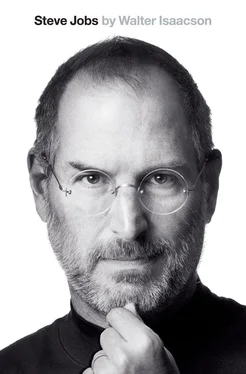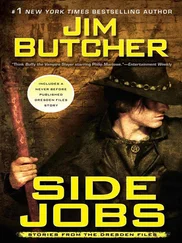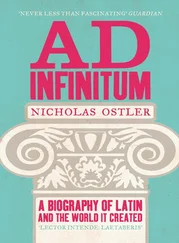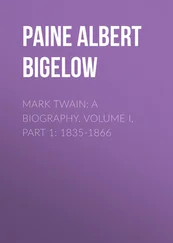In the summer of 1954, Joanne went with Abdulfattah to Syria. They spent two months in Homs, where she learned from his family to cook Syrian dishes. When they returned to Wisconsin she discovered that she was pregnant. They were both twenty-three, but they decided not to get married. Her father was dying at the time, and he had threatened to disown her if she wed Abdulfattah. Nor was abortion an easy option in a small Catholic community. So in early 1955, Joanne traveled to San Francisco, where she was taken into the care of a kindly doctor who sheltered unwed mothers, delivered their babies, and quietly arranged closed adoptions.
Joanne had one requirement: Her child must be adopted by college graduates. So the doctor arranged for the baby to be placed with a lawyer and his wife. But when a boy was born—on February 24, 1955—the designated couple decided that they wanted a girl and backed out. Thus it was that the boy became the son not of a lawyer but of a high school dropout with a passion for mechanics and his salt-of-the-earth wife who was working as a bookkeeper. Paul and Clara named their new baby Steven Paul Jobs.
When Joanne found out that her baby had been placed with a couple who had not even graduated from high school, she refused to sign the adoption papers. The standoff lasted weeks, even after the baby had settled into the Jobs household. Eventually Joanne relented, with the stipulation that the couple promise—indeed sign a pledge—to fund a savings account to pay for the boy’s college education.
There was another reason that Joanne was balky about signing the adoption papers. Her father was about to die, and she planned to marry Jandali soon after. She held out hope, she would later tell family members, sometimes tearing up at the memory, that once they were married, she could get their baby boy back.
Arthur Schieble died in August 1955, after the adoption was finalized. Just after Christmas that year, Joanne and Abdulfattah were married in St. Philip the Apostle Catholic Church in Green Bay. He got his PhD in international politics the next year, and then they had another child, a girl named Mona. After she and Jandali divorced in 1962, Joanne embarked on a dreamy and peripatetic life that her daughter, who grew up to become the acclaimed novelist Mona Simpson, would capture in her book Anywhere but Here . Because Steve’s adoption had been closed, it would be twenty years before they would all find each other.
Steve Jobs knew from an early age that he was adopted. “My parents were very open with me about that,” he recalled. He had a vivid memory of sitting on the lawn of his house, when he was six or seven years old, telling the girl who lived across the street. “So does that mean your real parents didn’t want you?” the girl asked. “Lightning bolts went off in my head,” according to Jobs. “I remember running into the house, crying. And my parents said, ‘No, you have to understand.’ They were very serious and looked me straight in the eye. They said, ‘We specifically picked you out.’ Both of my parents said that and repeated it slowly for me. And they put an emphasis on every word in that sentence.”
Abandoned. Chosen. Special. Those concepts became part of who Jobs was and how he regarded himself. His closest friends think that the knowledge that he was given up at birth left some scars. “I think his desire for complete control of whatever he makes derives directly from his personality and the fact that he was abandoned at birth,” said one longtime colleague, Del Yocam. “He wants to control his environment, and he sees the product as an extension of himself.” Greg Calhoun, who became close to Jobs right after college, saw another effect. “Steve talked to me a lot about being abandoned and the pain that caused,” he said. “It made him independent. He followed the beat of a different drummer, and that came from being in a different world than he was born into.”
Later in life, when he was the same age his biological father had been when he abandoned him, Jobs would father and abandon a child of his own. (He eventually took responsibility for her.) Chrisann Brennan, the mother of that child, said that being put up for adoption left Jobs “full of broken glass,” and it helps to explain some of his behavior. “He who is abandoned is an abandoner,” she said. Andy Hertzfeld, who worked with Jobs at Apple in the early 1980s, is among the few who remained close to both Brennan and Jobs. “The key question about Steve is why he can’t control himself at times from being so reflexively cruel and harmful to some people,” he said. “That goes back to being abandoned at birth. The real underlying problem was the theme of abandonment in Steve’s life.”
Jobs dismissed this. “There’s some notion that because I was abandoned, I worked very hard so I could do well and make my parents wish they had me back, or some such nonsense, but that’s ridiculous,” he insisted. “Knowing I was adopted may have made me feel more independent, but I have never felt abandoned. I’ve always felt special. My parents made me feel special.” He would later bristle whenever anyone referred to Paul and Clara Jobs as his “adoptive” parents or implied that they were not his “real” parents. “They were my parents 1,000%,” he said. When speaking about his biological parents, on the other hand, he was curt: “They were my sperm and egg bank. That’s not harsh, it’s just the way it was, a sperm bank thing, nothing more.”
Silicon Valley
The childhood that Paul and Clara Jobs created for their new son was, in many ways, a stereotype of the late 1950s. When Steve was two they adopted a girl they named Patty, and three years later they moved to a tract house in the suburbs. The finance company where Paul worked as a repo man, CIT, had transferred him down to its Palo Alto office, but he could not afford to live there, so they landed in a subdivision in Mountain View, a less expensive town just to the south.
There Paul tried to pass along his love of mechanics and cars. “Steve, this is your workbench now,” he said as he marked off a section of the table in their garage. Jobs remembered being impressed by his father’s focus on craftsmanship. “I thought my dad’s sense of design was pretty good,” he said, “because he knew how to build anything. If we needed a cabinet, he would build it. When he built our fence, he gave me a hammer so I could work with him.”
Fifty years later the fence still surrounds the back and side yards of the house in Mountain View. As Jobs showed it off to me, he caressed the stockade panels and recalled a lesson that his father implanted deeply in him. It was important, his father said, to craft the backs of cabinets and fences properly, even though they were hidden. “He loved doing things right. He even cared about the look of the parts you couldn’t see.”
His father continued to refurbish and resell used cars, and he festooned the garage with pictures of his favorites. He would point out the detailing of the design to his son: the lines, the vents, the chrome, the trim of the seats. After work each day, he would change into his dungarees and retreat to the garage, often with Steve tagging along. “I figured I could get him nailed down with a little mechanical ability, but he really wasn’t interested in getting his hands dirty,” Paul later recalled. “He never really cared too much about mechanical things.”
“I wasn’t that into fixing cars,” Jobs admitted. “But I was eager to hang out with my dad.” Even as he was growing more aware that he had been adopted, he was becoming more attached to his father. One day when he was about eight, he discovered a photograph of his father from his time in the Coast Guard. “He’s in the engine room, and he’s got his shirt off and looks like James Dean. It was one of those Oh wow moments for a kid. Wow, oooh , my parents were actually once very young and really good-looking.”
Читать дальше












